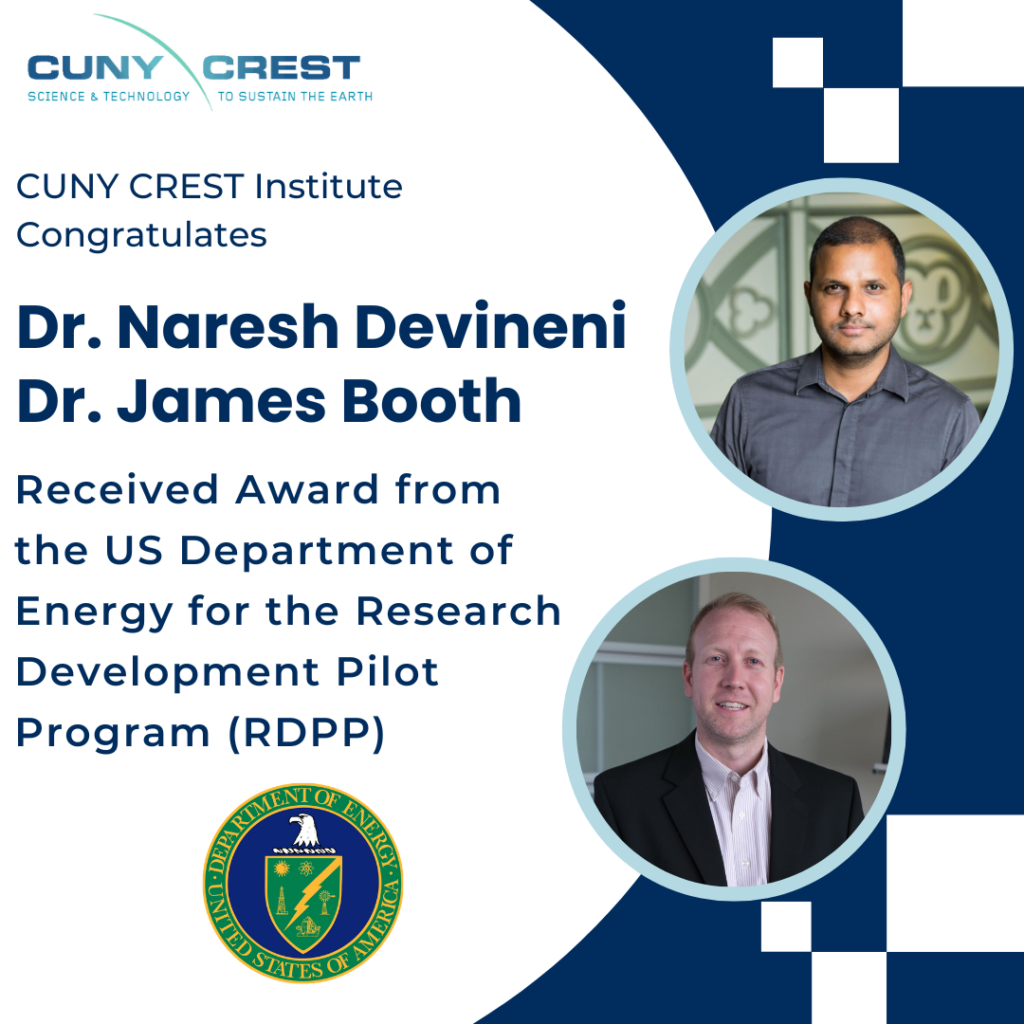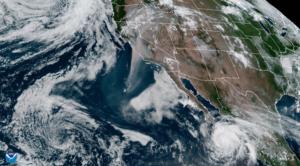Dr. Naresh Devineni and Dr. James Booth received award from the US Department of Energy through the Research Development and Partnership Pilot Program
Dr. Naresh Devineni, Associate Professor in the Department of Civil Engineering and Dr. James Booth, Professor and Deputy Chair of the Earth and Atmospheric Science Department, at the City College of New York were awarded ~$150,000 from the US Department of Energy – Research Development and Partnership Pilot Program (RDPP). Dr. Devineni will serve as the lead PI, Dr. Booth will serve as the Co-PI. Both Dr. Devineni and Dr. Booth were awarded for their project, Understanding Climate and Extreme Weather Events in the Greater New York Area.
Abstract:
New York City (NYC) would benefit from more tools and information to help with the City’s
response to unexpected flooding, especially from extreme rainfall events. The City’s challenges in
responding to flooding events in real-time was brought into sharp focus in 2021 by the devastating
results of Tropical Storm Henri and then Hurricane Ida. NYC experiences flooding events from
excessive rainfall from storms nearly every year, and sometimes multiple times in the same year.
It would benefit, in both financial and human terms, from better predictions for the areas most
vulnerable to flooding for any storm event. The City is also concerned about combined sewer
overflows because of their effect on water quality and recreational uses. Hence, it seeks to
incorporate the best available information about the current and future extreme rainfall events.
Understanding the scenarios that properly represent likely storm paths over the City and the
associated space-time patterns of rainfall can help improve the operation and performance of
hydrologic systems. The traditional design storm-based approach is inadequate for such spatial
network simulations. As such, the proposed research seeks to develop a methodology to design
extreme rainfall event scenarios considering changing large-scale climate patterns for informing
spatial risk in the Greater New York City area. Furthermore, more robust knowledge of correlated
extreme events and the resultant simultaneous infrastructure vulnerabilities can support the
emergency management division, and will likely create more effective early warning information
systems.
The research questions that will be addressed are: (a) how space-time distributions of rainfall
intensity for extreme rainfall events can best be estimated using multiple sources of rainfall,
climate, and storms data; and (b) how these rainfall fields can best be used to assess risks of failure
across a network of infrastructure systems. Precipitation estimates from numerical weather and
climate models can have significant biases and not resolve the spatial scales relevant for urban
flood hazard assessment. However, they resolve the large-scale features of moisture transport
associated with the events of concern. In essence, the models capture the larger-scale feature of
mesoscale convective systems, but not the fine details. The project will leverage these aspects of
the climate models to develop a physics-informed stochastic approach that improves the specificity
and accuracy of precipitation associated with future extreme rainfall events.
The PIs at The City College of New York (CCNY) will collaborate with the Department of
Energy’s Pacific Northwest National Laboratory (PNNL) scientists. This partnership will combine
PNNL scientists’ expertise in mesoscale convective systems and climate modeling with the PIs’
expertise in weather, climate, and hydrologic extremes. The project will facilitate more
collaboration between CCNY and PNNL, and is intended to be a catalyst to more extensive
research engagement focused on high impact weather and climate issues.


